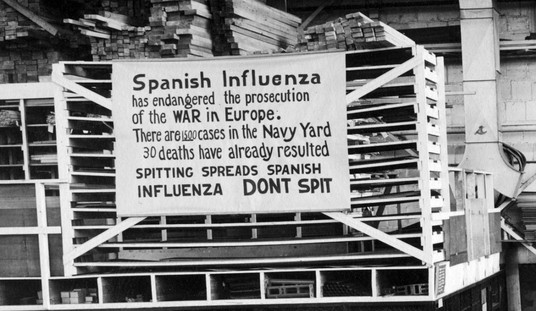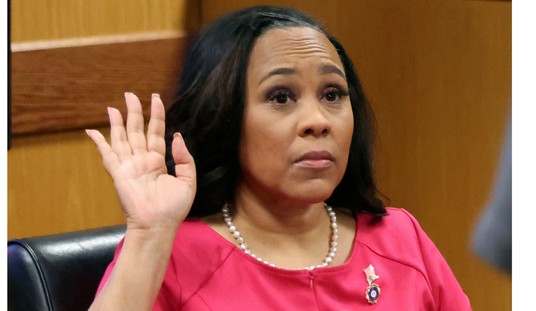Jazz Shaw referenced a case this week we’ve been watching at HotAir since it was argued the first time, on more narrow grounds, at the Supreme Court a couple years ago. The question at the heart of this round of oral arguments on an archaic raisin regulatory regime: Can the government confiscate substantial parts of a farmer’s crops in a bid to keep the prices of that crop stable as part of a long-ago established regulatory structure, without paying the farmer. The Hornes of California disobeyed the government’s orders to give over the literal fruits of their labors and then went to court to defend their practice.
According to the Fifth Amendment to the U.S. Constitution, the government must pay just compensation when it takes private property for a public use. Three years ago, in the case of Arkansas Game & Fish Commission v. United States, the U.S. Supreme Court reaffirmed that command, declaring that the government has a “categorical duty” to pay just compensation when it “physically takes possession of an interest in property.”
Yet according to the Obama administration, the Fifth Amendment places no substantive check on the federal government’s power to seize tens of thousands of tons of raisins without paying just compensation to raisin farmers. In oral argument this morning, the Supreme Court will consider the legality of that federal claim.
At issue today in Horne v. United States Department of Agriculture is a federal regulatory scheme which dates back to the Agricultural Marketing Agreement Act of 1937, a New Deal law designed to raise agricultural prices by tightly controlling the amount of agricultural products that went to market. For raisin “handlers” such as family farmers Marvin and Laura Horne of California, what this means in practice is that each year they are required to turn over a certain percentage of their crop to the federal government, or else pay the government the dollar equivalent of that crop, plus certain fines. The federal government then enjoys exclusive control over those raisins, and may opt to sell them for export, or put them to other use, such as in school lunch programs. To put that in perspective, in 2002-2003, the Hornes and other farmers were told to hand over 30 percent of their raisin crop, which amounted to 89,000 tons. In return, the federal government paid nothing.
Now, we all know oral arguments are a notoriously unreliable way to gauge how the Court might come down on a question, but they’re still fun, especially when liberal and conservative justices alike deride the law in question for being “ridiculous.”
Here are some of SCOTUSblog’s best quotes from oral arguments today:
A short time later, Justice Sonia Sotomayor asks how this case is different from Leonard v. Earle, a 1929 decision that upheld Maryland’s tax of ten percent of the oyster shells harvested by farmers. (The shells were useful in maintaining oyster beds.)
Oysters are wild animals, and they are the property of the state, he says. “[R]aisins are not wild animals, even if they’re dancing,” he says. The Courtroom laughs, and most of the Justices grin. Everyone loves the famous California Raisins of the 1980s.
Sarcastic Scalia makes an appearance:
When Deputy Solicitor General Edwin S. Kneedler steps to the lectern to defend the raisin regulatory program, Justice Antonin Scalia is soon stomping on him like grapes in a vat.
“These plaintiffs are ingrates, right?” Scalia says. “You’re really helping them?”
“You say it’s one little feature of an overall program,” Scalia continues. “That little feature happens to be the taking of raisins.”
In the gallery, the people sitting on each side of Marvin Horne turn to each other and smile in appreciation at Justice Scalia’s sarcasm. Horne looks intensely toward the bench.
Justice Kennedy with a skeptical take:
“So, you say if the government took all GM’s cars, then it would be okay?” he asks Kneedler.
When the deputy solicitor general says no, the Chief Justice challenges what he perceives as the government’s theory of the case, that “this is for the good of the people whose property we’re taking.”
Justice Roberts being blunt:
“This is different because you come up with the truck and you get the shovels and you take their raisins, probably in the dark of night,” the Chief Justice says.
And, bi-ideological agreement:
The last face-off comes as Justice Kagan asks Kneedler whether the government must convince the Justices that the raisin marketing order is sensible for it to be upheld.
“I mean, we could think that this is a ridiculous program, isn’t that right?” she says.
“You could think that this is a ridiculous program, but it is one that has been around since 1949,” and ruling that it amounts to a taking would have broad consequences, Kneedler says.
Both Justices Ginsburg and Scalia follow up at the same time. Justice Scalia wins this last face-off, and Justice Ginsburg turns her head in the direction of her dear friend, as if to yield the floor.
Scalia didn’t feel any need to wait for that acknowledgment, leaning forward to tell Kneedler, “It doesn’t help your case that it’s ridiculous, though. You acknowledge that.” (Kneedler would not.)
Good luck, Hornes.








Join the conversation as a VIP Member